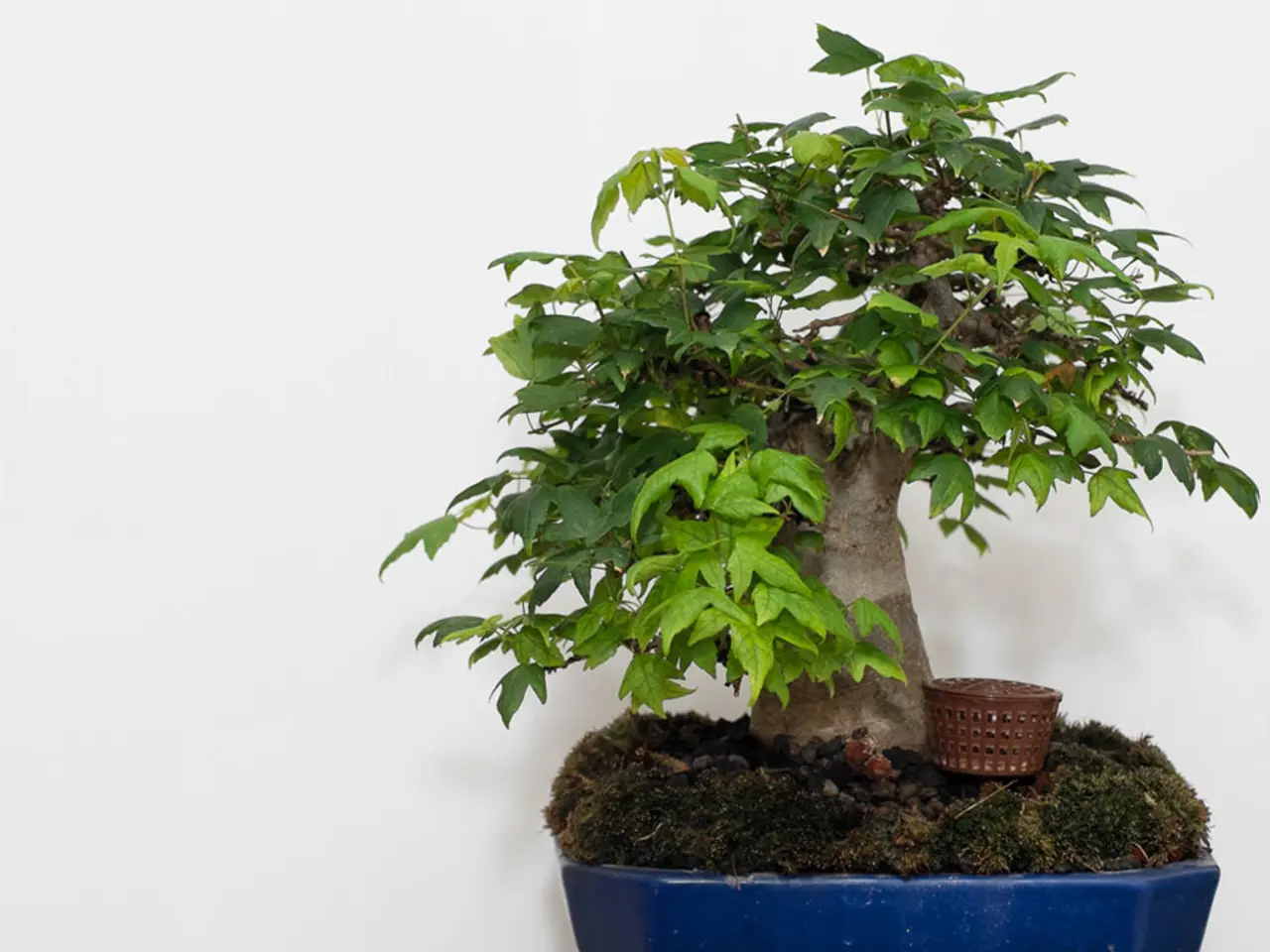Nutrient-Rich Bonsai Soil Mixtures Promote Robust Root Expansion for Thriving Bonsai Trees
Discover the key ingredients that make up the ideal soil mix for promoting healthy root development in bonsai trees. These blends, when carefully crafted, ensure optimal drainage, aeration, and nutrient availability - all critical for bonsai root health.
The Key Components
Akadama
A hard-baked Japanese clay, Akadama is a versatile component in bonsai soil. It retains moisture while allowing proper drainage and air flow. As the bonsai matures, Akadama loosens, gradually increasing water retention.
Pumice or Perlite
Porous volcanic rocks such as pumice and perlite play a vital role in improving drainage and aeration. They prevent soil compaction, ensuring roots receive adequate oxygen and excess water drains quickly to avoid root rot.
Organic Matter (Worm Castings, Compost, Coconut Coir)
Organic matter adds nutrients and moisture retention while improving soil structure. Worm castings, compost, and coconut coir supply essential nutrients for growth and help buffer moisture fluctuations.
Orchid Bark
Coarse bark pieces like orchid bark improve aeration and prevent compaction, aiding in root development by allowing roots to spread and breathe.
The Balance Matters
The balance among these ingredients impacts drainage, aeration, and nutrient content, all of which are essential for bonsai root health. Porous components like pumice/perlite and bark allow excess water to escape, preventing soggy soil and root rot. Larger particles and porous matter create air pockets so roots can obtain oxygen, which is crucial for respiration and growth. Organic amendments supply nutrients gradually, supporting sustained healthy root and foliage development.
Tailoring the Mix
Specialized bonsai soil blends often vary by bonsai species, pot size, and climate. For example, more retentive mixes for very small pots to avoid drying out quickly, or highly permeable mixes for larger pots promoting vigorous growth under aggressive fertilization.
Nourishing the Bonsai
A well-nourished root system enables the bonsai to thrive, resist disease and pests, and maintain its miniature size and aesthetic appeal. A well-balanced nutrient content in bonsai soil is essential for promoting healthy root development, disease resistance, and overall tree health. Inorganic amendments, such as fertilizers, can be used to supplement the soil's nutrient content, but over-fertilization can be detrimental to the tree's health.
Key Considerations
When selecting the ideal bonsai soil blend, consider particle size variation, organic and inorganic amendments, and pH and nutrient content. To determine if your bonsai soil is too dense or compacted, inspect the soil's structure, checking for poor drainage, waterlogging, or restricted root growth; probe the soil gently with a chopstick or skewer to assess its density and aeration. Organic amendments like compost, worm castings, or humus provide a slow release of nutrients, promoting healthy root development and microbial activity.
A Perfect Blend
Crafting a custom bonsai soil mix from scratch is possible, but it requires careful consideration of the ideal blend of inorganic and organic components, particle sizes, and nutrient content. Regular repotting is vital for bonsai trees, as it refreshes the soil, prunes roots, and provides an opportunity to inspect for pests or diseases.
In summary, the best bonsai soil mixes combine inorganic materials (akadama, pumice/perlite, bark) for drainage and aeration with organic matter (worm castings, coconut coir) for slow nutrient release and moisture retention, creating an optimal environment for strong, healthy roots. Adjustments in proportions tailor the mix to specific bonsai needs and growing conditions.
- In environmental science, the fashion-and-beauty industry may incorporate sustainable practices, such as using plant-based materials for clothing or packaging, to reduce their impact on the climate-change.
- Although food-and-drink consumption is a daily lifestyle routine, it's essential to consider the environmental implications, like choosing locally-sourced, organic produce to minimize your carbon footprint.
- To create a perfect home-and-garden, technology can be integrated to automate irrigation systems, ensuring efficient water usage and thus, contributing to combating climate-change.
- Gadgets like digital thermometers and hygrometers can aid in monitoring environmental factors within the bonsai's ecosystem, playing a significant role in environmental-science and maintaining healthy root development.




